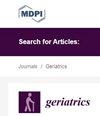老年人在日常生活活动中未得到满足的支持需求:中低收入背景下家庭和住户结构的影响
IF 2.1
Q3 GERIATRICS & GERONTOLOGY
引用次数: 0
摘要
老年人在日常生活活动(ADLs)中对援助的需求得不到满足,这加剧了老年人跌倒、健康状况不佳、住院和死亡的风险。在尼日利亚,由于现代化、移民和经济挑战,老年人获得支持的家庭安排正在发生变化。人们对家庭动态如何解释未满足的需求知之甚少。本研究调查了尼日利亚西南部的家庭和住户结构对老年人日常活动需求未得到满足的影响。研究采用多阶段抽样设计,分析了从尼日利亚西南部奥约州选出的 827 名年龄≥65 岁的老年人的数据。研究采用 Poisson-logit 障碍回归模型对相关性进行了检验。结果显示,65% 有困难的老年人在工具性日常活动方面的需求未得到满足,59% 的老年人在基本日常活动方面的需求未得到满足。与非家庭成员生活在一起的老年人(β = 0.19; p < 0.01; 95% C.I. = 0.05-0.32)和寡妇(β = 0.27; p < 0.01; 95% C.I. = 0.13-0.42)的未满足需求量增加。相反,未满足的需求随着家庭规模扩大(β = -0.06;p < 0.001;95% C.I. = -0.08--0.03)、生活在富裕家庭(β = -0.29;p < 0.001;95% C.I. = -0.42--0.17)、不是户主(β = -0.27;p < 0.001;95% C.I. = -0.40--0.15)、家庭关系密切以及接近子女/照顾者而减少。该研究建议为尼日利亚西南部家庭环境脆弱的老年人提供替代性或补充性家庭支持机制。本文章由计算机程序翻译,如有差异,请以英文原文为准。
Unmet Needs for Support in Activities of Daily Living among Older Persons: The Effects of Family and Household Structures in a Low- and Middle-Income Context
The unmet need for assistance in activities of daily living (ADLs) accentuates older persons’ risk of falls, ill health, hospitalisation, and mortality. In Nigeria, the family arrangements through which older persons derive support are changing due to modernisation, migration, and economic challenges. How the family dynamics explain the unmet needs is poorly understood. This study investigates the influence of family and household structures on older persons’ unmet needs in ADLs in southwestern Nigeria. The study analysed the data of 827 older adults aged ≥65 years selected from Oyo State, southwestern Nigeria, using a multi-stage sampling design. Associations were examined using the Poisson–logit hurdle regression model. From the results, 65% of older persons with difficulties had unmet needs in instrumental ADLs and 59% in basic ADLs. Increased unmet needs were associated with older persons living with non-family members (β = 0.19; p < 0.01; 95% C.I. = 0.05–0.32) and widows (β = 0.27; p < 0.01; 95% C.I. = 0.13–0.42). Conversely, unmet needs decreased with higher family size (β = −0.06; p < 0.001; 95% C.I. = −0.08–−0.03), living in rich households (β = −0.29; p < 0.001; 95% C.I. = −0.42–−0.17), not being the household head (β = −0.27; p < 0.001; 95% C.I. = −0.40–−0.15), close family bonds, and proximity to children/caregivers. The study recommends alternative or complementary home-based support mechanisms for seniors with vulnerable family settings in southwestern Nigeria.
求助全文
通过发布文献求助,成功后即可免费获取论文全文。
去求助
来源期刊

Geriatrics
医学-老年医学
CiteScore
3.30
自引率
0.00%
发文量
115
审稿时长
20.03 days
期刊介绍:
• Geriatric biology
• Geriatric health services research
• Geriatric medicine research
• Geriatric neurology, stroke, cognition and oncology
• Geriatric surgery
• Geriatric physical functioning, physical health and activity
• Geriatric psychiatry and psychology
• Geriatric nutrition
• Geriatric epidemiology
• Geriatric rehabilitation
 求助内容:
求助内容: 应助结果提醒方式:
应助结果提醒方式:


